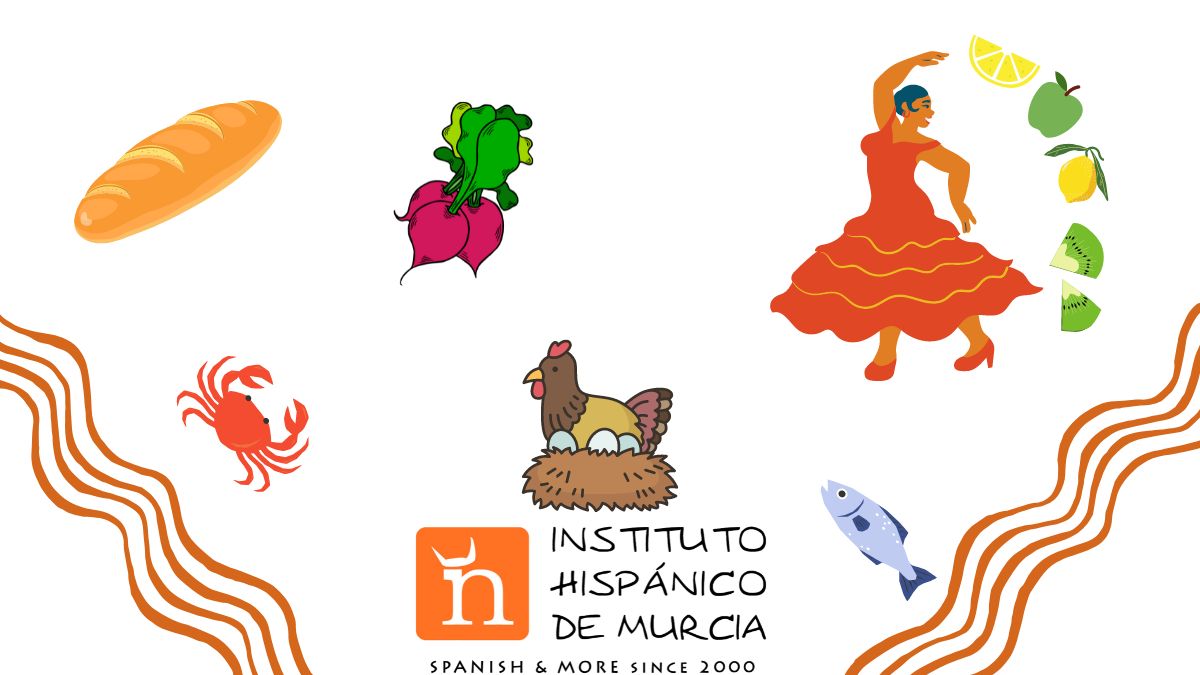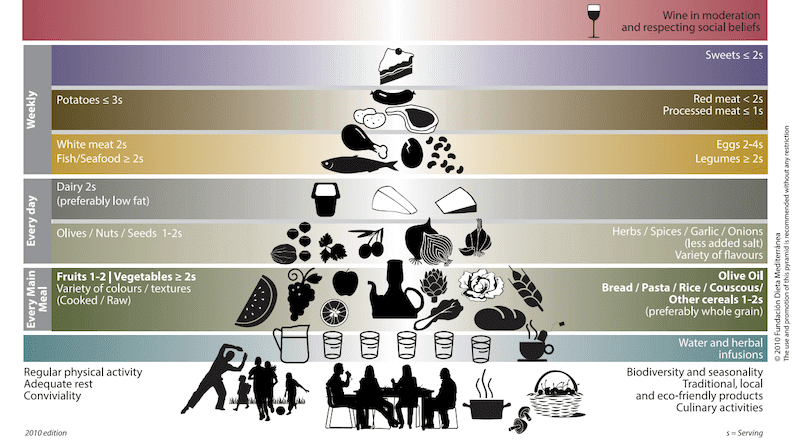The region of Murcia is located in the south-east of Spain and is characterised by its Mediterranean climate and gastronomy based on Mediterranean food. Important elements that attract tourists from all over the world who come here to immerse themselves in our national context.
The Mediterranean diet has been extensively researched over the years, and its health benefits are linked to the variety of foods that make up this type of diet and the tendency to lead an active lifestyle.
Since food is one of the fundamental pillars for maintaining a healthy life, it is necessary to continue to maintain, adapt and update the practices that lead us to maintain this state of well-being. As Hernández et al. (2022) state in a review aimed at updating this topic, the Mediterranean dietary model is not only a set of foods, but also includes social and cultural factors that make it an example of a healthy lifestyle with health and environmental benefits, and considers it a sustainable dietary model. It can be said that Murcian gastronomy makes a significant contribution to this model of eating, which brings so many benefits and advantages to our bodies and our planet.
Among the various possibilities offered in the Murcian context are the typical recipes of the area, which we will be looking at in this issue of our blog.
The Murcian diet follows the canons of the Mediterranean diet, which is characterised by vegetable dishes with little meat. It also offers a lot of whole grains, fresh fruit and vegetables, nuts and legumes, which are high in fibre, as well as an abundance of fish and other shellfish typical of this area, which is characterised by its coastal environment with extensive fishing activity.

On what basis is the Mediterranean diet defined?
Use olive oil as the main base.
Eat plenty of plant-based foods: fruits, vegetables, legumes, mushrooms and nuts.
Bread and foods of cereal origin (pasta, rice and especially their wholemeal variants) should be part of the daily diet.
Lightly processed, fresh and seasonal foods are best.
Dairy products, especially yoghurt and cheese, should be consumed daily.
Red meat should be consumed in moderation, possibly as part of stews and other recipes. Processed meats should be consumed in small quantities, as an ingredient in sandwiches or composed dishes.
Fish should be consumed in abundance and eggs in moderation.
Fresh fruit should be the usual dessert. Sweets and pastries only on special occasions.
Water is the drink par excellence in the Mediterranean. Wine should be drunk in moderation and only during meals.
Exercise every day, which is as important as a proper diet.
The Mediterranean diet brings many benefits to those who follow it as a lifestyle.

The food pyramid of the Mediterranean diet
At the initiative of the Mediterranean Diet Foundation, with the collaboration of a large group of experts from various disciplines, such as agriculture, anthropology, nutrition and sociology, and with the support of various international organizations, a new interpretative scheme of the Mediterranean diet was created.
This new food pyramid follows the pattern of the traditional classical pyramids: it therefore places at the base the foods that should sustain the diet and relegates to the upper layers, graphically narrower, the foods that should be consumed in moderation. The innovative element lies in the addition of cultural and social indications, closely linked to the Mediterranean lifestyle, based on a concept of diet understood in a broad sense. The aim is to emphasize that it is not only a question of choosing one food over another, but also of how it is selected, cooked and consumed. In addition, the pyramid indicates the composition and number of servings of the main meals.

A study by Buckland et al. (2008) reported that although their systematic review of studies on the Mediterranean diet needed to standardise criteria in defining the pattern of this diet, it generally prevents overweight or obesity, in addition to physiological mechanisms that positively influence the prevention of harmful weight gain.
The Mediterranean diet differs from Mediterranean gastronomy in that it is unique to our geographical area. It is found in Cyprus, Croatia, Spain, Greece, Italy, Morocco, Portugal and France.
Its health benefits are attributed to the finding that although more fat is consumed in Mediterranean countries than in the United States, the incidence of cardiovascular disease is much lower. One of the reasons may be a higher consumption of foods containing monounsaturated fatty acids, which are found in olive oil and which lower blood cholesterol levels. This reduces the risk of diseases and problems such as diabetes, hypertension, heart attack or stroke.
This is not necessarily a globally allocated diet, as much depends on agriculture and animal husbandry, which vary from region to region. Although in today’s globalized market any product can reach anywhere in the world, the corresponding quality of food and resulting dishes cannot be guaranteed. In addition, the worldwide spread of the Mediterranean diet is one of the main factors contributing to the increasing incidence of celiac disease, gluten sensitivity and other gluten-related disorders; this is due to the high consumption of gluten-containing foods in this diet.
It is interesting to compare these results of the use of the Mediterranean diet with its clearly cardioprotective effects and to analyse whether it should eventually become the established diet for most people or whether it still has much room for improvement.
For this reason, the Mediterranean diet as proposed has never been traditionally consumed in any Mediterranean country, which did not prevent it from being declared an Intangible Cultural Heritage of Humanity in 2013 by a joint decision of Spain, Greece, Italy and Morocco.
In the same year, the United Nations Educational, Scientific and Cultural Organization (UNESCO) agreed that the Mediterranean diet should be registered as an Intangible Cultural Heritage of Humanity in Cyprus, Croatia and Portugal, three years after it approved this requirement for Spain, Greece, Italy and Morocco.




There are no comments on The Mediterranean diet